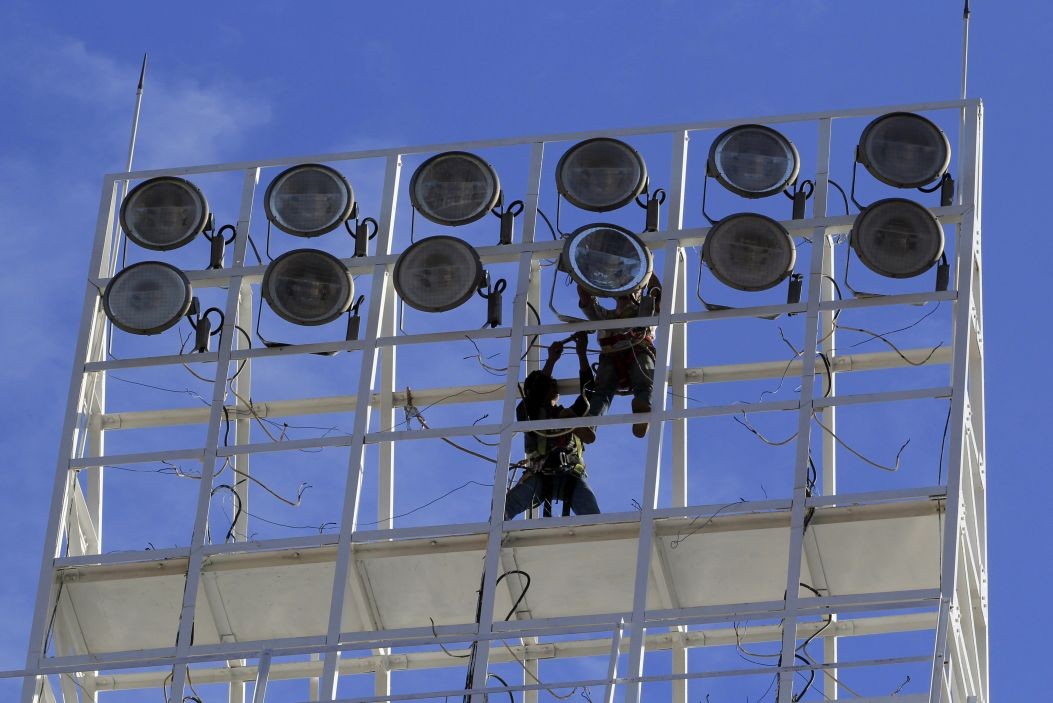Popular Reads
Top Results
Can't find what you're looking for?
View all search resultsPopular Reads
Top Results
Can't find what you're looking for?
View all search resultsPapuans urge dialogue in Otsus review
Papuan community leaders and activists have urged the central government to exercise wisdom and involve Papuans in a review of the special autonomy status for Papua and West Papua as Jakarta plans to amend the legal basis
Change text size
Gift Premium Articles
to Anyone
P
apuan community leaders and activists have urged the central government to exercise wisdom and involve Papuans in reviewing the special autonomy (Otsus) status of Papua and West Papua as Jakarta plans to amend the Otsus Law.
The law is the legal foundation for the Papua administration to manage its own political, cultural and economic affairs. It was enacted in 2001, before being revised in 2008 to grant West Papua similar special autonomy.
It also stipulates the allocation of special autonomy funds from the central government -- set to stop in November 2021 -- to accelerate development in Indonesia's two easternmost provinces.
Home Minister Tito Karnavian has hinted at the possibility of extending the special autonomy status for Papua and West Papua beyond 2021, with the deliberation of the latest Otsus Law revision having been included in this year's National Legislation Program (Proglegnas) priority list.
John Bunai, a spokesperson for a group of 57 Catholic priests from across Papua that recently demanded an end to the “forced continuation of Otsus in Papua”, now called on the government to open up space for dialogue between Papua and Jakarta.
He said such a space should be an integral part of the process to review what had gone wrong during the implementation of the special autonomy so far.
“We stand by our call to not abruptly force [an extension of the Otsus status] without discussing it with the [Papuan] people,” John, who is a Catholic priest from the Papuan capital Jayapura, said in a recent virtual public discussion.
That dialogue, John said, should also involve regional administrations to review how they spent the Otsus funds, which could help identify problems in the disbursement and management of the funds.
The head of the Papua chapter of the Indonesian Ulema Council (MUI), Saiful Islam Al-Payage, said the money disbursed for almost two decades had not led to a significant improvement in the livelihoods of Papuans.
This implied that the law had not been faithfully implemented for the benefit of Papuans, he said, citing a lack of trust between Jakarta and the Papua administration as well as overlapping regulations as major failures.
“The Otsus that has been in place for almost 20 years clearly [provides] affirmative [policies] for Papuans, but sometimes the central government has its own regulations that contradict [the Special Autonomy Law],” Saiful said in the same online discussion. “This is a problem preventing a good implemented of Otsus.”
Home Ministry’s director general for regional autonomy, Akmal Malik, did not immediately respond to a request for comment.
Between 2002 and 2020, the central government has disbursed about Rp 94.24 trillion (US$ 6.43 billion) in Otsus funds to the administrations of Papua and West Papua, President Joko “Jokowi’ Widodo said in a Cabinet meeting in March.
Amnesty International Indonesia’s Novel Matindas said Papuans’ negative perception of Otsus stemmed from violence against indigenous Papuans over the years.
“The failure of the Otsus implementation in Papua was mainly felt in the area of human rights in Papua,” Novel said.
Amnesty International has recorded 69 cases of alleged unlawful killings in Papua and West Papua between January 2010 and February 2018, with 95 victims.
In a July 30 report, the Institute for Policy Analysis of Conflict (IPAC) highlighted the need for engagement between the central government and Papuans to find a new approach that suits both sides.
“The Jokowi government should be using the Otsus deadline to engage credible Papuan leaders -- not hand-picked promoters of integration -- in discussions to think about new approaches toward political autonomy that could halt the current downward spiral,” the report said.
The report identified three major issues the central government needed to resolve soon: the influx of migrants to Papua; security issues posed by separatist groups, such as the Free Papua Movement (OPM), and human rights issues.
“New ideas are desperately needed,” IPAC director Sidney Jones said in a statement. “The problem is that in the past, every time Papuans have presented concrete proposals to address the issues that matter most to them -- migration, security and justice, for starters -- they have been undercut or overruled.”










